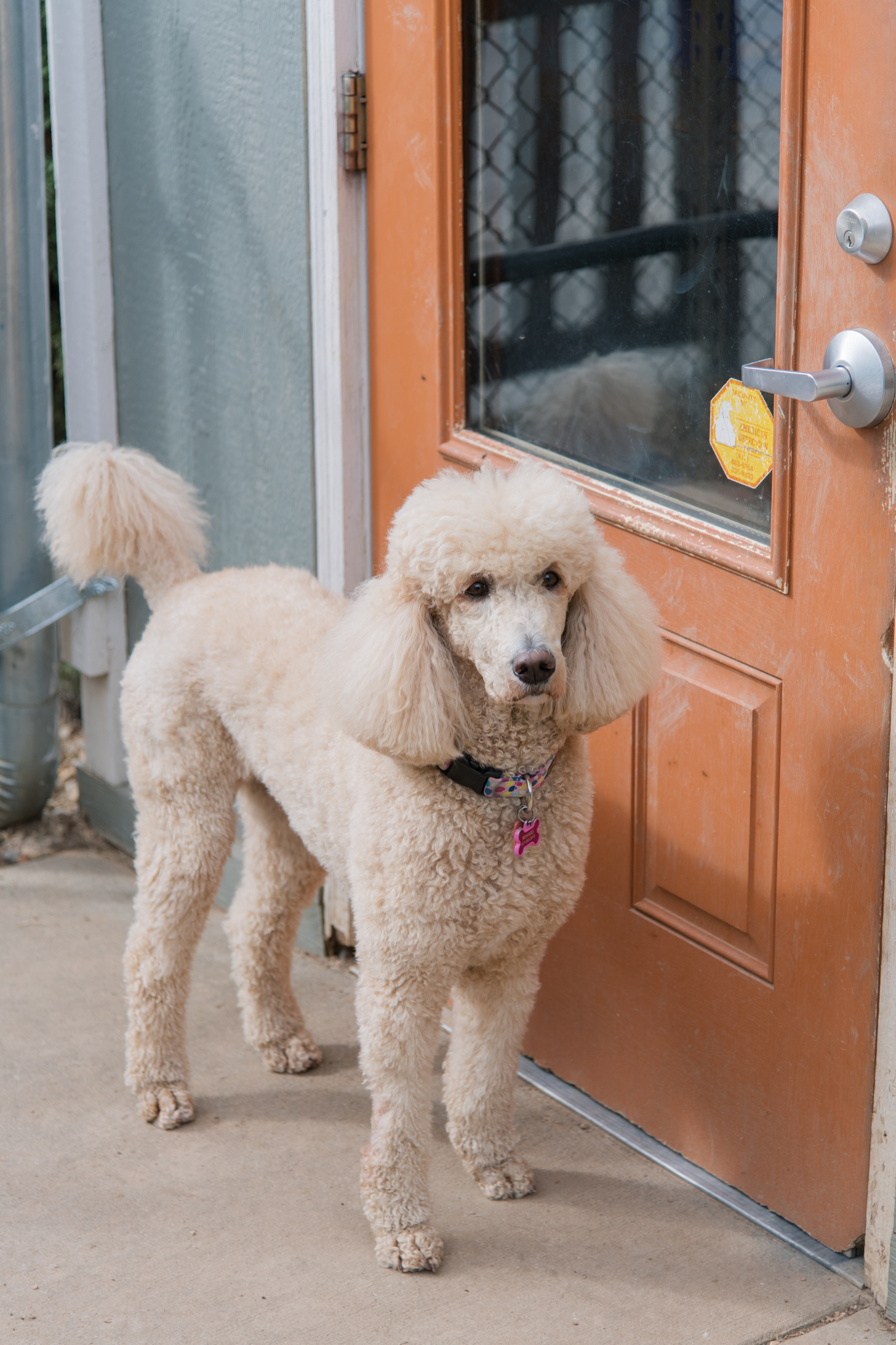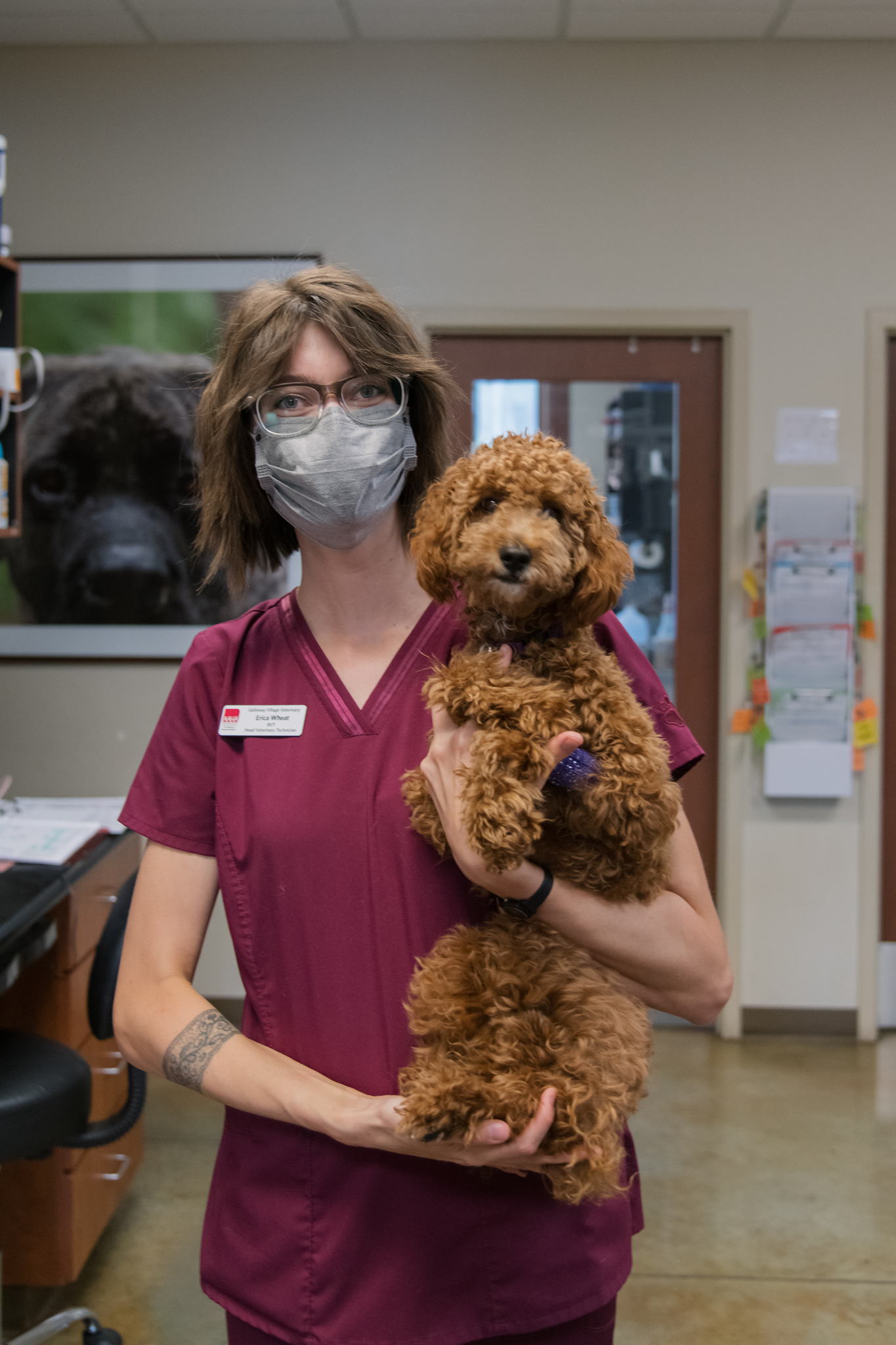You're a New Puppy Owner!
Congratulations on your new addition! Puppy ownership is a rewarding way to establish a lifelong bond with man's best friend. Whether you adopted your puppy from a shelter, friend, or breeder, we are committed to helping you through the process with as much information as we can. The following information is designed to help your new puppy remain healthy, happy, and safe.
Within the packets, you will find information regarding the vaccines your puppy will need and how often these are performed, microchip information, the benefits of spaying or neutering your puppy, and much more! We do know it's a lot of information but we do highly encourage that you take a look throughout your new puppy packet for any additional information that you might need.
If at any time you have questions or concerns about your new puppy, please do not hesitate to
call us!
Recommendations
Vaccinations - Vaccinations are started at about 6-8 weeks of age, typically.
-
DA2PPL5 helps protect against Distemper, Adenovirus 2, Parainfluenza, Parvovirus, and Leptospirosis. The vaccine is given every 3-4 weeks until 14-16 weeks of age. This helps boost your puppy's immunity to those diseases.
-
Bordetella vaccination is recommended as well. This vaccine helps protect against kennel cough. The vaccine is required if your dog will be groomed, boarded, attends puppy classes, etc. The vaccine is administered at 8 weeks of age.
-
Rabies vaccinations are given around 14-16 weeks of age, with a booster given one year later.
Deworming - Puppies can acquire intestinal parasites from their mother or from the environment that they have been exposed to. Since some intestinal parasites do have the potential to cause disease in people, we do recommend checking a stool sample for intestinal parasites in any new puppy. Some intestinal parasites are not visible to the naked eye, which makes this test important to ensure that your puppy is being de-wormed appropriately. After an intestinal parasite exam, we recommend monthly prevention to keep your puppy parasite-free.
Heartworm Prevention - Heartworms are transmitted by mosquitoes. The life cycle of heartworms is approximately 6 months long, so puppies are started on heartworm prevention at 8 weeks of age. Heartworm prevention products are given every 30 days indefinitely. Your puppy will need to be heartworm tested at 12 months of age and annually after that. Most products also have the added benefit of helping to control intestinal parasites as well. We are sending you home with some information on products we recommend as prevention against heartworm disease.
Flea and Tick Control - Fleas and ticks can cause puppies to become very uncomfortable; scratching and chewing can lead to trauma of the skin. Anemia can also result, and ingestion of fleas can lead to tapeworms. We recommend keeping your puppy on a monthly flea and tick prevention to help avoid any problems. We are sending you home with information of products we recommend as prevention against fleas and ticks.
Microchip - A microchip is a permanent way of identifying your pet. It is roughly the size of a grain of rice and is administered just under the skin: in-between the shoulder blades. The microchip can be placed at any time and does not require anesthesia but we generally do this at the time of spay or neuter. We highly recommend microchipping as a preventive measure to keep your pet safe.
Spay and Neuter - In order to prevent unplanned litters, we recommend spaying or neutering your pet. Spaying or neutering can help reduce the chances of unwanted behavior like aggression, marking, and straying from home. Neutering at around 6 months of age eliminates the chance of testicular cancer in males. If females are spayed at around 6 months of age and before their first heat cycle, it greatly reduces their chances of mammary cancer in the future and totally eliminates their chances of uterine cancer.
House Training - There is a document below regarding house training.
Dental Care - Starting puppies early with dental care is a big key to success. It is important to get them used to having their teeth brushed and their mouth looked at. We have included a document regarding dental care and the VOHC list of accepted products for dogs.
Puppy Socialization - Socializing your puppy is an extremely important part of your pet's overall health. Certain breeds may need more socialization than others. We have included a document regarding socialization for many different situations, like people, places, and things.
Frequently Asked Questions:
Back to Top

